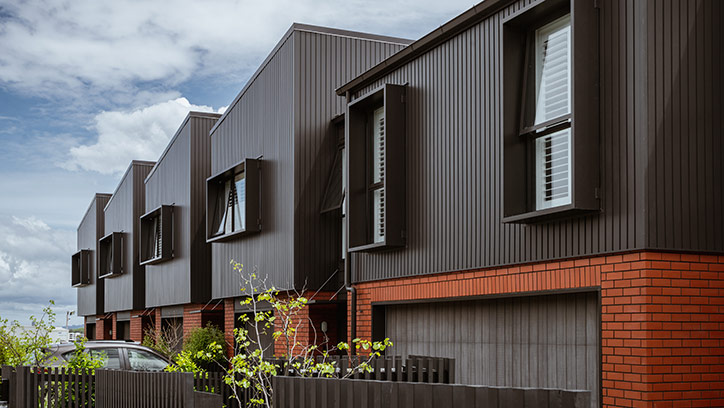Completing your project
Final steps to complete your build, from checking for defects to council sign-off (plus essential product information).
Last updated: 17 April 2024

You need to apply to council for sign-off as soon as you believe your building work is completed.
If your contractors have met all of the building consent requirements, including all scheduled inspections, getting a code compliance certificate should be straightforward.
Certificates prove work has been:
These are legal documents and so you should keep them — you might need them when you come to sell your house.
If your building work required council consent, you'll get a code compliance certificate when the job is finished and the Council is satisfied the building and plumbing work complies with the Building Code and the consent.
Discuss with your contractor whether they'll apply for the code compliance certificate or if you need to do it yourself.
Your local council's website might have more information about their process.
If you conducted work that did not require a building consent, you don’t need to get a code compliance certificate when the job is finished.
All electrical work must be tested and certified, whether it's a repair, replacement or new wiring. When work is finished, you must be given a copy of the certification.
The type of certification will depend on the work that was done. It could be all or a combination of:
When gasfitting work is done, you must be given a signed copy of the gasfitting certificate (also called an energy works certificate).
As part of completing the build, your contractor must give you certain information and documents related to the building work, regardless of the price or size of the project. You might need them for your code compliance certificate application, as well as for management and maintenance of your building.
Your contractor needs to give you:
Good maintenance, including best approach, major matters (including warranty requirements) and a checklist.
Protecting your investment provides information about maintenance
If the work you've had done will increase the value or rebuild cost of your home, make sure you speak to your insurance company about increasing your cover.
You also need to review the work, as you have 12 months from the date your building work is complete to tell your contractors about any defects in their work or the work of their subcontractors.
If you’ve contracted other tradespeople directly, you’ll need to contact them yourself (in writing) about any defective building work.
If you tell contractors about any defective work within the 12 month period, they must put it right within a reasonable timeframe from receiving written notification. If there is a dispute, it is the contractors’ responsibility to prove that any defects are through no fault of their own (or their product).
How to identify defects includes guidance and next steps.
Rights and obligations can help you understand responsibilities.
If your property has a specified system, you will receive a compliance schedule as part of your council sign-off (code compliance certificate). A specified system could be a cable car, sprinkler system or any system that requires ongoing maintenance so that it is effective and safe to use.
If your property is a multi-unit residential, commercial or public building you will have ongoing compliance building warrant of fitness (BWoF) requirements. Single residential buildings with cable cars also have BWoF requirements.
Commercial, public and multi-unit residential building manager responsibilities.
This information is published by the Ministry of Business, Innovation and Employment’s Chief Executive. It is a general guide only and, if used, does not relieve any person of the obligation to consider any matter to which the information relates according to the circumstances of the particular case. Expert advice may be required in specific circumstances. Where this information relates to assisting people:
This will print only the current page of this guidance document.
Print this page